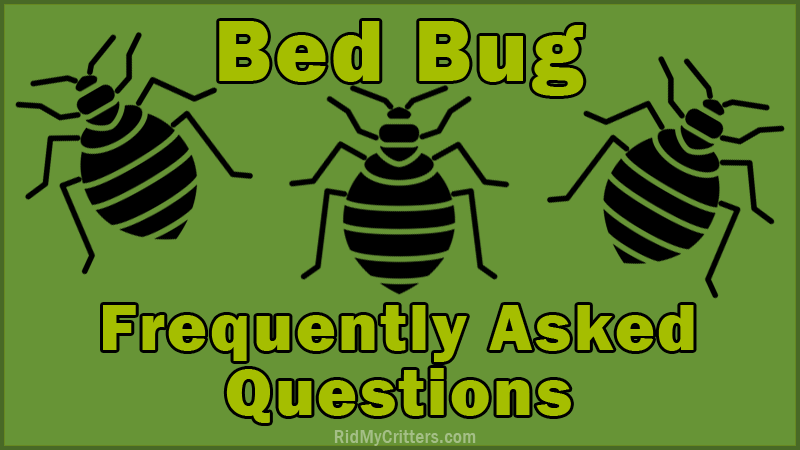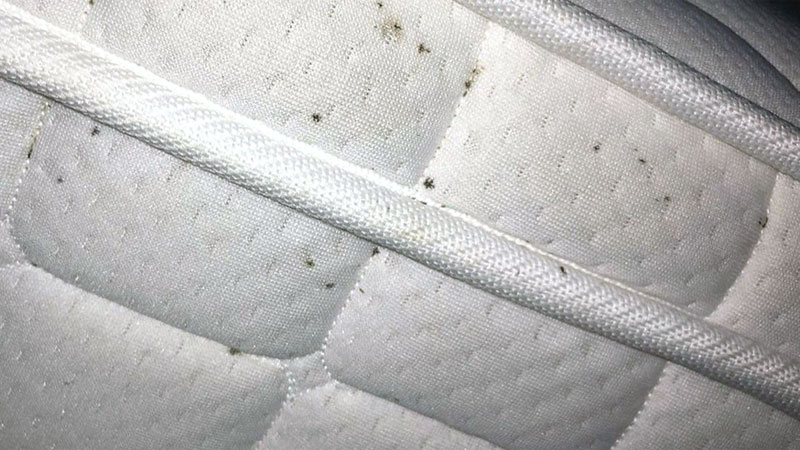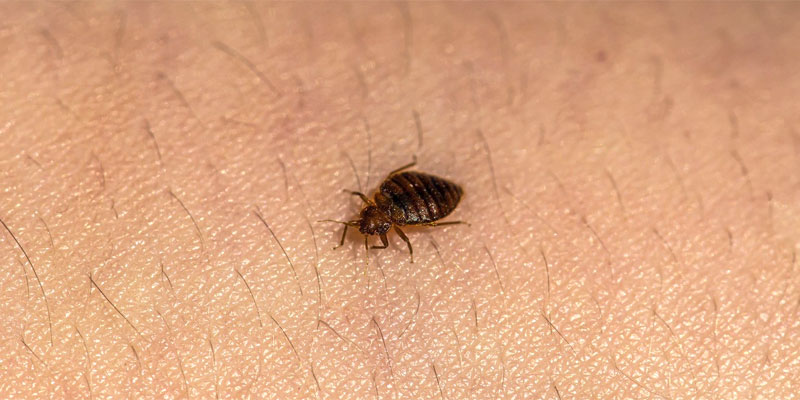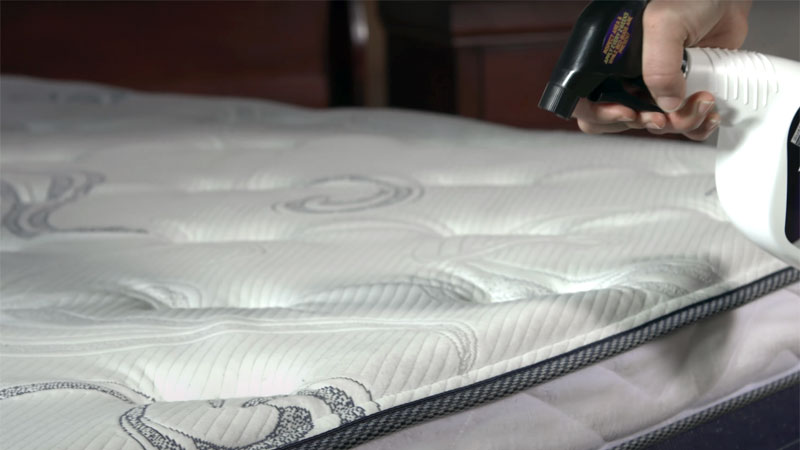One of the biggest defenses against bed bugs and other pests is proper education. Not only does this include carrying out periodic inspections and knowing what to look for, but also knowing how to tell facts from fiction. In the case of bed bug facts, there are quite a few myths hiding in the mix.
The following guide will look at many of the most common claims regarding bed bugs and bed bug treatments, determining if they’re fact or fiction. The more you know, the better your chances of getting rid of bed bugs quickly and efficiently.
Bed Bug Frequently Asked Questions
Let’s start by looking at bed bugs themselves. Here are several common questions regarding these little blood suckers and their lifestyle.
#1 – Are Toys/Furniture Salvageable After Bed Bugs?
We’re sure you’ve heard plenty of horror stories by now about people being forced to destroy their beds and replace half their belongings because of a bed bug infestation. But is this really necessary?
In many cases, these people are throwing away their belongings as a precaution. However it’s rarely necessary to throw out your possessions when dealing with an infestation. In fact, this rumor has been known to cause people to avoid dealing with an infestation, causing it to spread elsewhere.
In truth, many toys can be cleaned using heat treatments, either in the dishwasher or dryer. Electronics can be a little tougher to debug (no pun intended), but they’re not always a loss. Sometimes they can simply be taken apart and cleaned, if you have the confidence to do so.
Furniture is often discarded because people are worried about not getting into the cracks, but there are ways around this. In fact, dealing with them in the bedroom can be surprisingly easy. Common hiding places such as picture frames or your bed frame can be treated with a bed bug bomb, if you use it responsibly.
You can also eliminate any bed bugs in your mattress seams or box springs by using a mattress encasement. Mattress protection bags (AKA mattress covers) can be used to seal away any adults, nymphs, and eggs where they’ll eventually die of starvation. Just don’t expect regular plastic or garbage bags to do the same thing.
Just be warned that there are other critters that can look like bed bugs or even bite you in your sleep which may be resistant to many common bed bug treatments.
#2 – Are Bed Bugs Nocturnal?
You go to bed, you wake up with bed bug bites (or something similar). This little fact has led to the myth that bed bugs only come out at night.
However, they’ll come out whenever there’s food nearby, even during the day. So no, bed bugs are not nocturnal. That’s not to say they like the light, and will usually run from light to avoid potential predators.
#3 – Are Bed Bugs Rare?
Of all the rumors out there regarding bed bugs, this is perhaps the most dangerous. Around 100 years ago, it was pretty uncommon to hear about a bed bug infestation, but heavy use of chemical pesticides have created superbugs and the bed bug population has since exploded.
While it’s true that some lucky individuals will never encounter a bed bug (or notice when they do), the simple fact is that bed bug infestations are considered to be of epidemic proportions in the US. You can easily pick up a bed bug at school, work, hotels and motels, or on public transportation.
It’s best to always remember that public places are supposed to announce if they’ve been infested but often won’t for fear of losing business. As a result, it’s best to know what to do when you think you may have been exposed.
Related: What Do Bed Bug Casings Look Like?
#4 – Do Bed Bugs Avoid Certain People?
While it’s true that bed bugs have certain things that attract and repel them to a degree, the simple fact is that you’re not immune just because it doesn’t look like the bed bugs bit you.
In fact, some people show symptoms instantly, some after a day or more, and some have zero reaction at all. There’s evidence that an adult bed bug will prefer the same human blood type they started with or be more likely to avoid people who recently ate garlic. However, they’ll still go after anyone close by when hungry enough.
#5 – Do Bed Bugs Live in Hair?
While this may seem a logical deduction (after all, similar pests such as fleas, ticks, and lice do), the good news is that bed bugs don’t like staying on you any longer than it takes to feed.
In fact, they can barely even make their way through fur, which leads many to think that a bed bug will never attack a cat or dog (they will, it’s just very rare).
#6 – Can Bed Bugs Jump or Fly?
Bed bugs move so fast that some people swear they can fly or even jump like a flea. Thankfully, this isn’t the case. They’re just that fast.
On top of that, bed bugs can also climb many surfaces. Fortunately, smooth surfaces give them problems.
#7 – Do Bed Bugs Stick to Beds?
This is the flip side of the previous myth’s coin and also quite false. Bed bugs prefer to hide near any place where a food source might sleep. This includes beds, couches, and sometimes even carpets.
They can be anywhere in an infested room, although they’re most often within a few feet of the buffet. Sadly, this means they can be almost anywhere in your house that humans frequently relax in.
#8 – Can Landlords Be Held Responsible for Bed Bugs?
This is an incredibly important (and complicated) matter. There are no Federal laws regulating bed bugs, and every state has its own spoken or unspoken laws.
For many, this issue falls back to what’s known as the “warranty of habitability”, i.e. the unspoken right of all tenants to have a home that meets certain standards of safety and accommodation.
In such cases, you and your landlord are equally responsible for pest control. Proving the pests were there before you moved in can put the burden of extermination fees on the landlord, but otherwise the fees will likely fall on the tenant.
In a few states, such as New York, there are laws which protect some or all public places from infestation, but municipalities hold the final say when it comes to a residence.
For example, in many New York cities, the landlord is solely responsible for extermination costs, often within a specific timeframe. Meanwhile, other municipalities and smaller towns may fall back on the warranty of habitability.
It’s always best to check up on your local and state codes regarding pest control, and (if you are a landlord), have a record of inspection prior to new tenants moving in, as well as information in the lease regarding any pest control laws and when the responsibility falls on a tenant or landlord.
In the event of a multi-family tenement, such as an apartment building or hotel, it’s important to confirm whether other tenants are seeing any signs of bed bug infestation, as this can have a major effect on whether or not the landlord is responsible.
#9 – Do Only Female Bed Bugs Bite?
This myth is actually understandable. As females require a blood meal to reproduce, it’s easy to assume males don’t need blood. However, both males and females subsist entirely on human blood.
Home Remedies: Fact or Fiction
Now that we’ve covered bed bugs themselves, it’s time to look at the minefield that is home remedies, as well as some chemical options. Bed bugs CAN be eliminated from your home, but it’s not always easy.
Also, keep in mind that your mileage may vary based on how often an infestation is exposed to a specific remedy. To be most effective, it’s important to switch it up occasionally or these critters will simply get used to the treatments.
Also note that it’s sometimes easier to hire an exterminator than to try and deal with the bugs themselves. However, rubbing alcohol and other home remedies may still be used in conjunction with a professional visit.
#10 – Are Pesticides and Chemical Repellents Really Effective?
This is a matter of some debate, and often comes down to YMMV (your mileage may vary). According to a 2013 study, chemical compounds found in many popular chemical repellents were found to be nearly to totally ineffective against bed bugs.
However, it was also found that the while popular brand DEET can be quite effective at repelling bed bugs temporarily, their hunger will eventually cause them to ignore it.
As for chemical pesticides or insecticides, these can be incredibly effective, if used in moderation.
#11 – Can Dogs Detect Bed Bugs?
Many exterminators employ bed bug detection dogs, but this method isn’t all it’s cracked up to be. Dogs can’t tell the difference between a new infestation and an old one. Likewise, they might give false positives or fail to detect an infestation.
Thus, while fun to watch, don’t rely on this as a foolproof method. Certainly don’t rely on your own furry friend to perform a canine inspection to save money!
#12 – Do Essential Oils Kill or Repel Bed Bugs?
Some essential oil scents can repel bed bugs, and lavender has been known to kill bed bugs on direct contact. However, your results may vary and bed bugs can get used to a single smell over time.
#13 – Do Spiders Eat Bed Bugs?
Yes, spiders can eat bed bugs. Unfortunately, they’re not likely to eat enough to slow or stop an active bedbug infestation.
#14 – Does Baking Soda Kill Bed Bugs?
In theory, baking soda can kill bed bugs in multiple ways. In practice, however, you have to apply it frequently and it isn’t an instant kill, making it highly impractical as a consistent bed bug killer.
When dealing with cracks or crevasses where vinegar can be safely used, you can use this in the classic one-two cleaning combo. The bubbling can chase their flat bodies out of hiding, but is best used as a spot treatment.
#15 – Does Bleach Kill Bed Bugs?
Bleach will dissolve the exoskeleton of bed bugs, killing them. However, it must come into direct contact with their bodies (usually via spray) and has a high risk of damaging furniture, fabrics, or your skin. So yes, bleach will kill bed bugs but with serious side effects.
#16 – Does Borax Kill Bed Bugs?
If used as a contact killer, borax is about 33 percent effective at eliminating bed bugs. However, it does carry toxicity risks when used around kids or pets.
#17 – Does Cleaning Repel Bed Bugs?
Bed bugs aren’t attracted to dirt, they’re attracted to hiding spots. As a result, having a clean home won’t get rid of these pests. Of course, it can reduce their potential hiding spots to make detection and extermination easier.
Related: How to Identify Bed Bug Poop
#18 – Does Diatomaceous Earth Kill Bed Bugs?
Yes, diatomaceous earth will kill bed bugs. However, you probably don’t want to sleep on it. It’s great for dusting where edge of wall and floor meet or around the base of furniture, though.
#19 – Does Garlic Repel Bed Bugs?
Garlic can be a pretty effective way of repelling bed bugs (and relatives). There are two ways it can be used.
If you’re Italian or simply love the smell, you can spray your bed with a garlic spray. Just be ready to sleep alone. Conversely, you can eat a lot of garlic and the bed bugs will often avoid you. Just be warned, if they get hungry enough, they’ll still come for you.
#20 – Does Lysol Kill Bed Bugs?
This is a pseudo myth. You CAN kill bed bugs if you pretty much drown them in Lysol, Fabuloso, or other popular cleaning products. By that point, you may as well just use soapy water, because these products are otherwise totally ineffective.
#21 – Does Vinegar Kill Bed Bugs?
Vinegar can kill bed bugs if you douse them in it, but can also damage furniture and cause other problems. You can use it for spot treatments as long as you don’t try to rely on it.
#22 – Can Certain Temperatures Kill Bed Bugs
While it’s true that high heat can (and will) kill bed bugs without fail, there’s a common misconception that cooler temperatures the same. Unfortunately, putting your mattress or upholstered furniture outside over the winter won’t cure it of bed bugs and will probably just result in mold.
For bed bugs to be killed by cold, they need direct exposure to temperatures of around 3° Fahrenheit or colder for at least an hour. Also, the hot water in your washing machine is sadly not hot enough to kill bed bugs.
Bed Bug Exterminator Facts and Myths
Finishing out our little list, let’s look at a couple myths regarding pest control professionals.
#23 – Are Pest Control Firms Always Necessary
If there’s one thing that bugs us (no pun intended) here at RMC, it’s when professional pest control companies try to tell you that they’re the only way to solve an infestation. This simply isn’t true.
You can eliminate a small to moderate infestation in a single-family home by employing an integrated pest management strategy. However, for severe infestations, apartment complexes, or cases where there’s a high risk of allergic reactions, it might be better to call a pest professional.
#24 – Pest Control Companies are Expensive
This is often subjective, but it also depends a lot on the treatment method used. A pest management professional bases their cost on the extent of the infestation, the size of the area to be treated, and the type of treatment needed.
Spraying or similar chemical methods tend to be more affordable. But severe infestations that require tenting the house (where high heat is pumped throughout the rooms and wall voids) can cost as much as a used car.
- How to Get Rid of Hawks - March 8, 2024
- How to Get Rid of Pill Bugs (Rolly Pollies) - March 1, 2024
- How to Get Rid of Groundhogs (Woodchucks) - February 5, 2024












